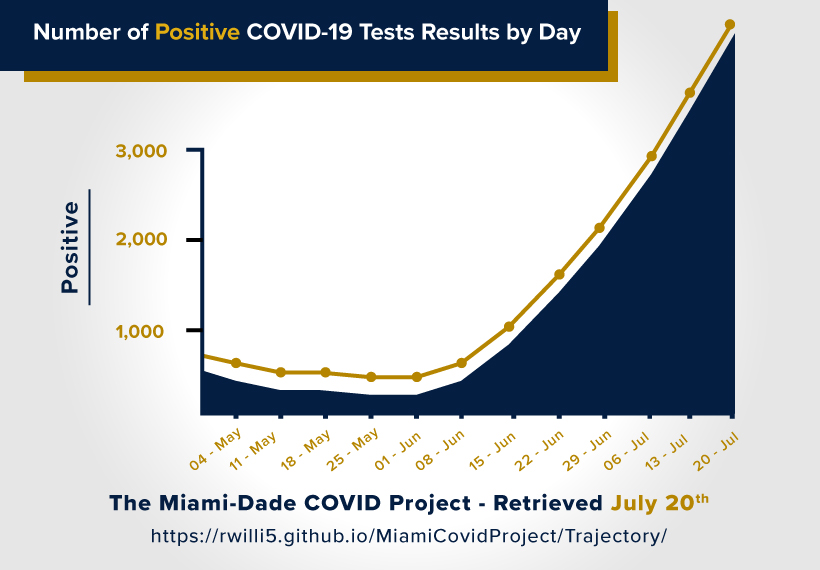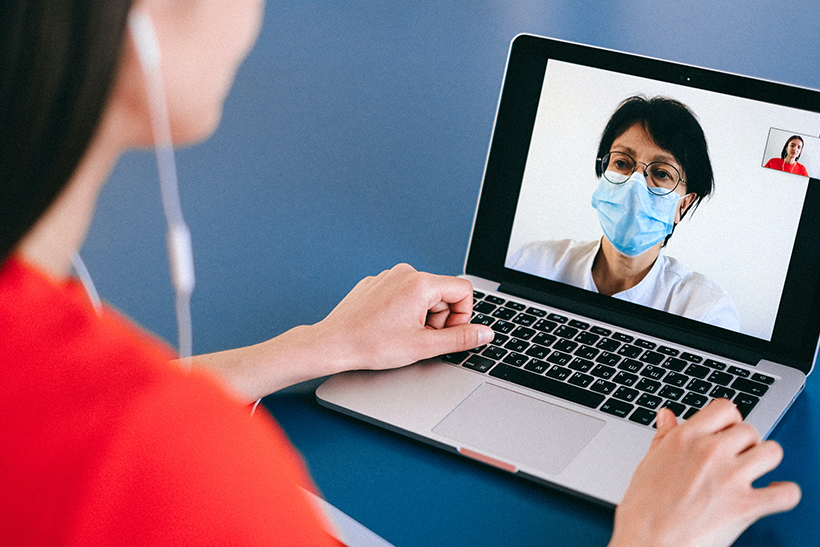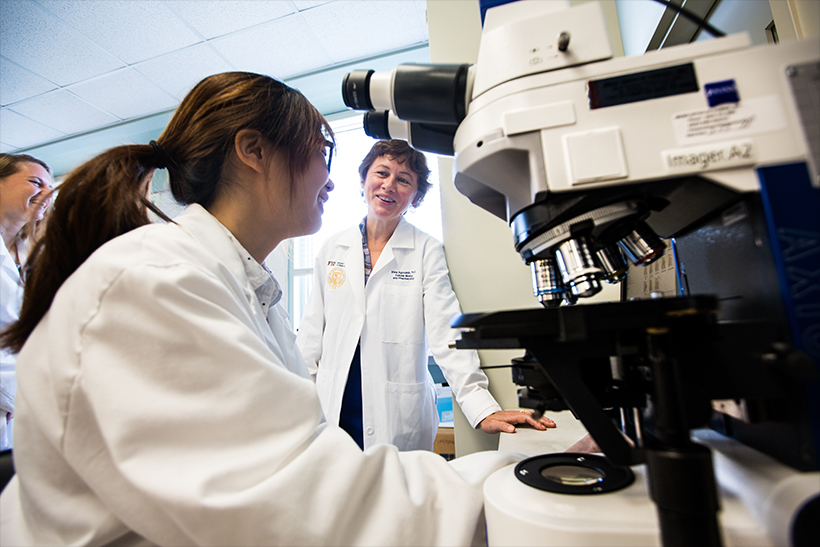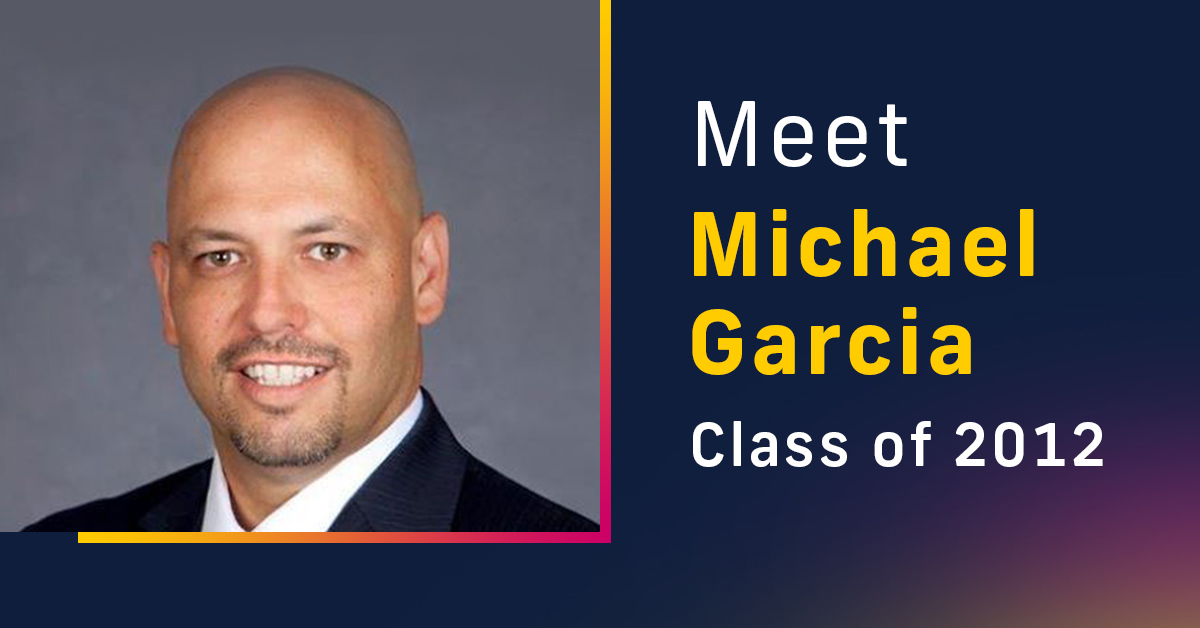After completing the Master of Science in Information Systems (MSIS) program at FIU Business in 2012, Michael A. Garcia became the chief information officer for the Jackson Health System – one of the largest public health systems in the U.S.
Now, he faces one of the biggest challenges of his career: leading his organization through the COVID-19 pandemic.

The onset and spread of coronavirus were swift within the U.S., and Florida has been one of the states to feel its impact the most. A whirlwind of changes had to happen in Florida and at Jackson specifically, who received its first coronavirus-positive patient in March. “Time was of the essence,” said Garcia.
Garcia shared how the Jackson Health System had to respond to the pandemic and how technology and data analytics played a significant role as the keynote speaker at FIU’s International Conference on Information Resources Management (Conf-IRM) 2020 Virtual Symposium in May.
The symposium itself faced its own challenges. Unable to gather speakers and attendees in Miami, it went online for the first time in 13 years.

As part of his virtual presentation, Garcia shared the changes and challenges within the Jackson Health System and how his education and 20+ years of experience prepared him:
HEALTH DATA AND TECHNOLOGY CHALLENGES
1. Electronic Health Record (EHR)
The most immediate changes happened with patients’ electronic health records. This included changes in registration, scheduling, questionnaires, workflows, alerts, care plans and more.
Patients had appointments changed to be handled remotely or entirely canceled. They also had to note if patients:
- Had traveled
- Been in contact with someone with COVID-19
- Were high risk or low risk
- If they tested positive
- And much more
Many things had to be built into the EHR to account for these new workflows. Garcia and his team built new interfaces, so test results were automatically, discreetly and quickly handled. They formed new rules and flags to help patients and employees stay safe when a patient was COVID-positive, which didn’t exist before.
2. Telehealth
Prior to the pandemic, Jackson already had a contract with a telemedicine provider. It provided a secure, end-to-end encryption with no recording allowed. They quickly repurposed this, and it played a major role for inpatients, outpatients and employees.
From an inpatient perspective, it helped minimize exposure. Patients who were in their hospital rooms communicated with employees by using carts that had cameras and monitors. This increased communication with staff, while minimizing any exposure to the virus and conserving PPE, which was already in short supply nationally.
Outpatients were able to have their appointments handled remotely. Non-essential employees also switched to working from home to keep them safe and clinic volumes low. All meetings for employees went virtual – even if everyone was on campus.
From a technology perspective, Garcia and his IT team had to review bandwidth, VPN and security, and make sure they had all the applications they needed.
3. Data and Innovation
With the speed of the coronavirus spread, Jackson needed to make real-time critical decisions, and that put an urgency in how quickly data was collected, analyzed, and shared.
Types of data requested that went to the county, state, and federal government twice a day included:
- Total patients tested vs. COVID-19 positive patients
- COVID-19 patients currently admitted
- COVID-19 patients in ICU, on ventilators and discharged
- New COVID-19 patients on a daily basis
- Acute care and ICU beds occupied vs. available
- Beds that can be converted to acute care and/or ICU
- Ventilators available vs. used
- PPE available
Many of the applications and tools Jackson now uses didn't exist before COVID-19. Jackson Health System’s data strategy is vendor-agnostic, which means they do not work with vendors, but develop their own applications in-house. A vendor agnostic IT infrastructure gave Jackson the flexibility to quickly develop new applications during COVID-19.
Some of the new application capabilities they built, included:
- Real-time access to all interfaced application data feeds
- Ability to track important information and establish data-driven relationships
- Ability to take action based on dynamic workflows and observations
- Identification of patients under investigation and tracking of status
- Leveraging data as an asset in real-time to power “artificial intelligence” (AI)
- Automation of human work to replace human repetitive efforts and alleviate staff
- Communication information quickly improving turnaround times
- Machine learning environments to forecast possible surges and how to start recovery efforts
- Screening, tracking, and redeployment of employees to other areas of the hospitals that were negatively impacted by COVID-19.
4. Cybersecurity
With the massive influx of data came more significant security threats. Garcia noted a few of the steps the team took to prevent hackers from gaining access:
- Educating all employees on security awareness
- Constant patch management
- Restricting downloads and access to unauthorized sites and applications on company-owned devices
- Multi-factor authorization
- Tracking their company-owned devices with behavior analytics

LEADERSHIP CHALLENGES
Garcia has also been able to leverage his business education throughout the pandemic in other areas:
1. Employees
The support for these new initiatives all came from in-house, so Garcia’s team of 250+ employees all played a major role in handling the pandemic data and technology changes. They were divided into multiple discipline teams to leverage each employees’ skills and talents.
The data they collected also helped other hospital leaders manage their teams, removing and redeploying medical staff to different areas of the hospital as numbers of on-sight employees fluctuated due to the virus.
2. Budget
Garcia’s department budget was hit hard during the pandemic. With no revenue coming in as appointments and elective surgeries were cancelled, Jackson experienced around a $25 million deficit monthly.
Decisions had to be made about which projects and existing implementations to freeze. Many employees had great ideas, but priorities got tackled first. They learned to leverage and improve their current tools to repurpose them.
3. Future initiatives
When it comes to the onslaught of technological changes, Garcia says that going forward, they plan to keep and continue implementing their new applications. Jackson always has patients that are in isolation, and now they are better prepared for future pandemics.
He hopes that the Jackson Health System will continue to play a vital role in the pandemic as clinical trials for a vaccine begin, as they collect and share data on what they’re giving their patients. They will continue further developing contact tracing into their new systems.
Impact Powered by Technology
The effects of COVID-19 are still being felt dramatically in Florida. With the many challenges the Jackson Health System faced, Garcia attributes the MSIS program's relevancy to playing a significant role in developing and managing health data applications and tools today.
You can watch Garcia’s keynote presentation on Zoom.
To learn more about the Master of Science in Information Systems program at FIU Business, you can attend an information session or request more information.


